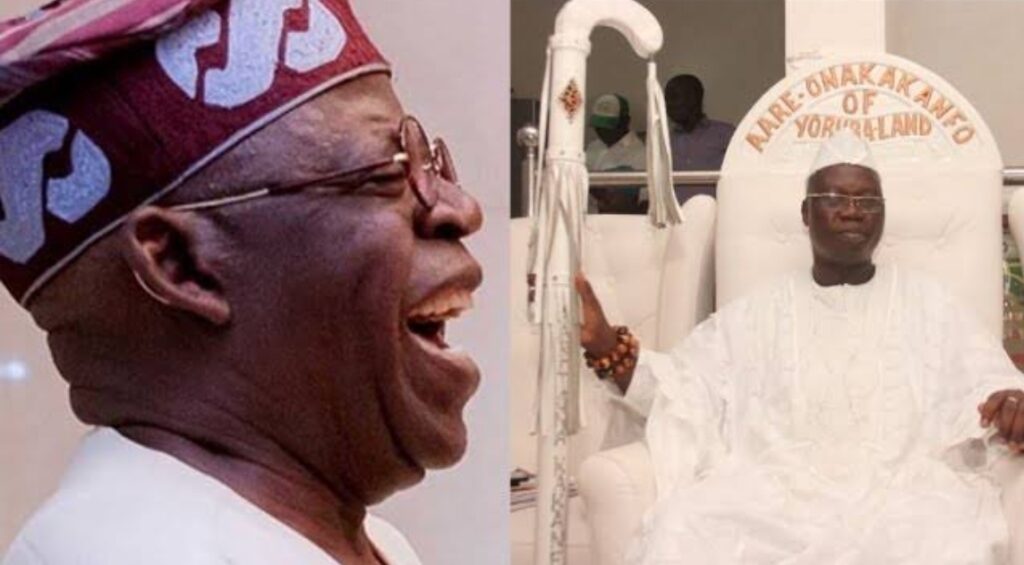Nigeria is facing its worst economic crisis in decades, with skyrocketing inflation, a national currency in free-fall and millions of people struggling to buy food.

The Aare Ona Kakanfo of Yorubaland, Iba Gani Adams has berated the President Bola Tinubu administration’s insensitivity to Nigerians’ economic challenges.
Adams expressed deep concerns over the growing hardship the citizens are facing under the current government.
In an open letter titled ‘President Bola Tinubu, time is going’, Gani Adams said: “We have no regret that we were created to inhabit this geographical space in the West African axis of the African continent.
“Obviously, past leaders, since 1960, disappointed Nigerians with the way ‘Nigeria and Nigerians were badly led and resources selfishly managed’.”
He then criticized President Tinubu’s campaign promises, saying, “When you came with the ‘Emilokan’ coinage…many Nigerians were persuaded that you will perform better than Muhammadu Buhari.”
“On May 29, 2023, when you became the Commander-in Chief…the price of a litre of fuel was less than N200. Today, it is more than N1000,” Adams said.
He questioned the reform efforts of Tinubu’s administration, particularly in the economy: “What type of reform is this?… In May 2023, the Naira to a Dollar was less than N740. Today, it is more than N1,600.”
Adams further decried the increase in insecurity across the country, noting, “…from the North to the South, East to the West, the rate at which Nigerians are being abducted…it was as if these blood-thirsty maniacs have just been unleashed on Nigerians from the hottest part of hell.”
He, however, urged the president to reconsider his policies.
“Mr President, don’t you think the wicked and draconian increase in fuel price…is a huge recipe for crisis?”“Nigerians can no longer bear this economic hardship any longer.”
Nigeria is facing its worst economic crisis in decades, with skyrocketing inflation, a national currency in free-fall and millions of people struggling to buy food. Only two years ago Africa’s biggest economy, Nigeria is projected to drop to fourth place this year.
The pain is widespread. Unions strike to protest salaries of around $20 a month. People die in stampedes, desperate for free sacks of rice. Hospitals are overrun with women wracked by spasms from calcium deficiencies.
Although President Bola Tinubu increased the minimum wage — after strike action and months-long negotiations with labour unions — from N30,000 to N70,000, his government has increased spending for officials at a time of nationwide starvation.
For workers earning the new N70,000, or $43, per month minimum wage, capricious inflation and naira value have inflicted too much damage for the changes to make any difference in their lives.
The crisis is largely believed to be rooted in two major changes implemented by Mr Tinubu, elected 14 months ago: the partial removal of fuel subsidies and the floating of the currency, which together have caused major price rises.
A nation of entrepreneurs, Nigeria’s more than 200 million citizens are skilled at managing in tough circumstances, without the services states usually provide. They generate their own electricity and source their own water. They take up arms and defend their communities when the armed forces cannot. They negotiate with armed kidnappers when family members are abducted.
But right now, their resourcefulness is being stretched to the limit.
Prices of petrol tripled since the removal of subsidy in May 2023, from around ₦200/litre to about ₦1000/litre, compounding the woes of the citizens who power their vehicles, and generating sets with petrol, no thanks to decades-long epileptic electricity supply.
Amid a lingering fuel scarcity and crisis, petrol is being sold for ₦855 per litre at state-owned petroleum company, NNPCL, cementing claims that the price has been reviewed upward to reflect the nation’s current foreign exchange woes and fuel landing cost hassles.
In recent weeks, the nation has suffered an acute fuel scarcity that led the few stations with fuel to sell at exorbitant prices above N1,000 per litre while black market prices exceeded N1,200.
